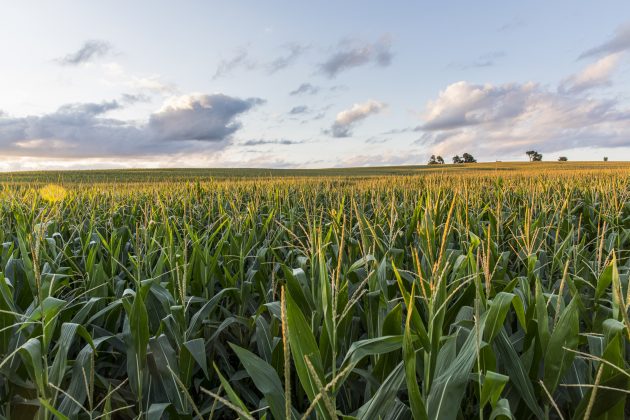Farmers have been trying to increase yields on their fields for millennia, selecting and planting the highest-yielding plants and continuing to improve them.
However, in recent years technology and especially genetic engineering has opened up completely new ways to develop crop plants that are more robust and provide better yield than traditional plant breeding.
Understanding the genetic factors behind the yield of crop plants is a rapidly developing discipline. The Novo Nordisk Foundation is supporting this development by awarding Guillaume Ramstein, an Assistant Professor at Aarhus University, an Emerging Investigator grant of DKK 8 million through its ambitious Research Leader Programme.
The research project will last 4 years, and during that time Guillaume Ramstein will dig a little deeper to understand how individual genes are expressed in the physical traits of plants.
“My research interest is understanding the effect of genes on physical traits in plants, including crop resilience and yield. Today, examining these effects requires studying large segments of genetic material or performing complicated genetic experiments. This has limitations and is expensive, but other statistical methods can create greater resolution in the genetic data, and that is what I will create over the next 4 years,” says Guillaume Ramstein.
Kickstarting a new research career
Guillaume Ramstein explains that getting grants for major basic research projects in plant genetics can be difficult in Denmark.
He is therefore also pleased that the grant from the Foundation will provide him the time and space to establish a forward-looking research plan – rather than having to apply for funding for one project after another.
In the long term, this research may also have a direct influence on some of the crop plants that are especially important in Denmark, including wheat, barley and rye.
“I am very relieved because I now have the opportunity to investigate some very important questions in my field and subsequently prepare the results for practical application. This is the perfect opportunity for me to start my career,” says Guillaume Ramstein.
Investigating conserved genes across plant species
The research Guillaume Ramstein will carry out over the next 4 years has two main parts.
First, he will use advanced statistics to study genetics across grass species, including wheat, rice and corn. By identifying the genes that are highly conserved across species, Guillaume Ramstein can provide more knowledge on why genes are important and what their function is.
“We can use the conserved genes of plants to become more knowledgeable about the basic mechanisms of individual genes and why a gene has been conserved. This part of the research involves substantial data analysis and modelling,” explains Guillaume Ramstein.
Discoveries enable practical application
The second part of the project aims to transfer the experience from the data analysis to the real world. Guillaume Ramstein will validate the digital findings by genetically manipulating actual plants to substantiate that the relevant genes have the presumed significance for the physical traits of the plants.
This part will prepare the research results for eventual practical application.
If the researchers can analyse which genes are important for a plant’s robustness, size or yield and can screen for the same genes in crop plants, they can determine which plants are worth taking further for planting in the fields and which plants can be discarded very early in plant breeding.
“By doing this across plant species, we can better predict which genes will be relevant in a wide range of crop plants. The research can therefore become part of the scientific foundation for the plant breeders of the future,” says Guillaume Ramstein.
143 researchers have received a grant
Guillaume Ramstein’s grant is part of the Foundation’s Research Leader Programme.
The Foundation has just awarded DKK 370 million through the Programme for research within fields including health, disease and sustainability. The grants are for up to DKK 10 million and are awarded to researchers at three different career stages.
38 researchers have been awarded grants in 2021:
- 18 researchers in the Emerging Investigator category have received grants to establish their own research group.
- 14 researchers in the Ascending Investigator category have received grants to consolidate their research group and profile.
- 6 researchers in the Distinguished Investigator category have received grants to continue their research at an already high international level.
143 researchers have received 5-year grants since 2018.
Read more about the Foundation’s Research Leader Programme here.
Further information
Christian Mostrup, Senior Programme Lead, +45 3067 4805, [email protected]








